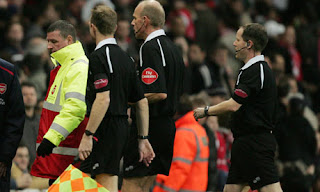Mercurial forward may hold the key to United's title challenge, and Sir Alex needs to realise that to get the best out of the Bulgarian, he must be used consistently.
Dimitar Berbatov divides opinion like almost no other player in the game (with the possible exception of Emile Heskey). He dazzles some with remarkable displays of nonchalant brilliance, but baffles others with his seemingly indifferent attitude and questionable work-rate. What is beyond debate though is that out of Manchester United's last five games, the three victories came with the Bulgarian in the starting XI, while for the two defeats, he started on the bench.
Of course, to judge a player and his impact on the team based purely on their last five games fails to tell the whole story. Berbatov remains something of an enigma at United, and has yet to show his best form consistently. However, he has shown in the past that his best form comes when he is starting regularly (in fact, whose doesn't?), and that he tends to hit his stride in the second half of the season.
During his two years at Spurs Berbatov started slowly each season, but came into his own during December. In 06/07, he scored twice against Charlton to add to a total of just seven goals up to that point. He ended the season with 23 in all competitions. In 07/08, it took four goals against Reading at the end of December to kick-start his season - again he ended with 23 in all competitions. His Manchester United career thus far has been stop-start, but the team might just benefit from him having an extended run in the starting XI. He has scored in his last two games, and we might just be starting to see the emergence of the player so many United fans have waited so long to see.
Of course, at United you are expected to deliver straight away, especially after commanding such a large transfer fee. In that respect, Berbatov has been a disappointment so far. However, it is hard to deny that when he hits his stride, there are few players who are better to watch for sheer technique and vision in that central striker role, and with this style he can complement the athletic industry of the likes of Rooney, Valencia and Park behind him.
In fact, if United are to play the 4-2-3-1 formation that has become almost the default for top teams, Berbatov is by far the most suitable player to spearhead the attack. The use of Berbatov in this position is characteristic of the way the game has changed in recent years, and tactics employing forwards like the Bulgarian as a lone forward are becoming more and more commonplace (and effective) at the pinnacle of the world game. Jonathan Wilson comments that the traditional centre-forward as goal-poacher has long since departed at the top level. His comments on the future of the striker provide a fascinating insight into the way the game is changing, and Dimitar Berbatov perfectly fits the description of his modern "hybrid" forward. His outstanding close control, unrivalled vision and ability to thread a telling pass, together with his potency in and around the six-yard box make him a handful, and capable of playing the dual role of provider and finisher - previously split between two forwards - on his own.
An attacking line-up with Berbatov at the tip and Rooney behind, flanked with willing runners, appears to present both the best chances of success for United, and the highest potential for exciting and attractive attacking football. Let's hope that Ferguson persists with the talented forward, and that we start to see the full array of talent that this exciting player can produce on a regular basis.




